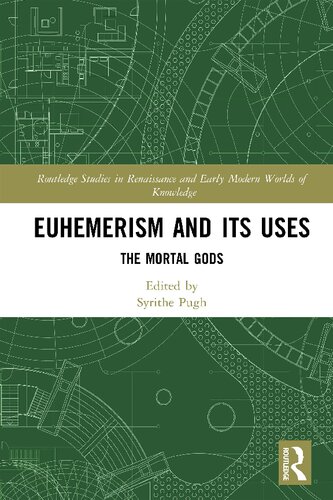

Most ebook files are in PDF format, so you can easily read them using various software such as Foxit Reader or directly on the Google Chrome browser.
Some ebook files are released by publishers in other formats such as .awz, .mobi, .epub, .fb2, etc. You may need to install specific software to read these formats on mobile/PC, such as Calibre.
Please read the tutorial at this link: https://ebookbell.com/faq
We offer FREE conversion to the popular formats you request; however, this may take some time. Therefore, right after payment, please email us, and we will try to provide the service as quickly as possible.
For some exceptional file formats or broken links (if any), please refrain from opening any disputes. Instead, email us first, and we will try to assist within a maximum of 6 hours.
EbookBell Team

0.0
0 reviewsEuhemerism and Its Uses offers the first interdisciplinary, focussed, and all-round view of the long history of an important but understudied phenomenon in European intellectual and cultural history.
Euhemerism – the claim that the Greek gods were historically mortal men and women – originated in the early third century BCE, in an enigmatic and now fragmentary text by the otherwise unknown author Euhemeros. This work, the Sacred Inscription, has been read variously as a theory of religion, an atheist’s manifesto, as justifying or satirizing ruler-worship, as a fantasy travel-narrative, and as an early ‘utopia’. Influencing Hellenistic and Roman literature and religious and political thought, and appropriated by early Christians to debunk polytheism while simultaneously justifying the continued study of classical literature, euhemerism was widespread in the middle ages and Renaissance, and its reverberations continue to be felt in modern myth-theory. Yet, though frequently invoked as a powerful and pervasive tradition across several disciplines, it is still under-examined and poorly understood.
Filling an important gap in the history of ideas, this volume will appeal to scholars and students of classical reception, mediaeval and Renaissance literature, historiography, and theories of myth and religion.